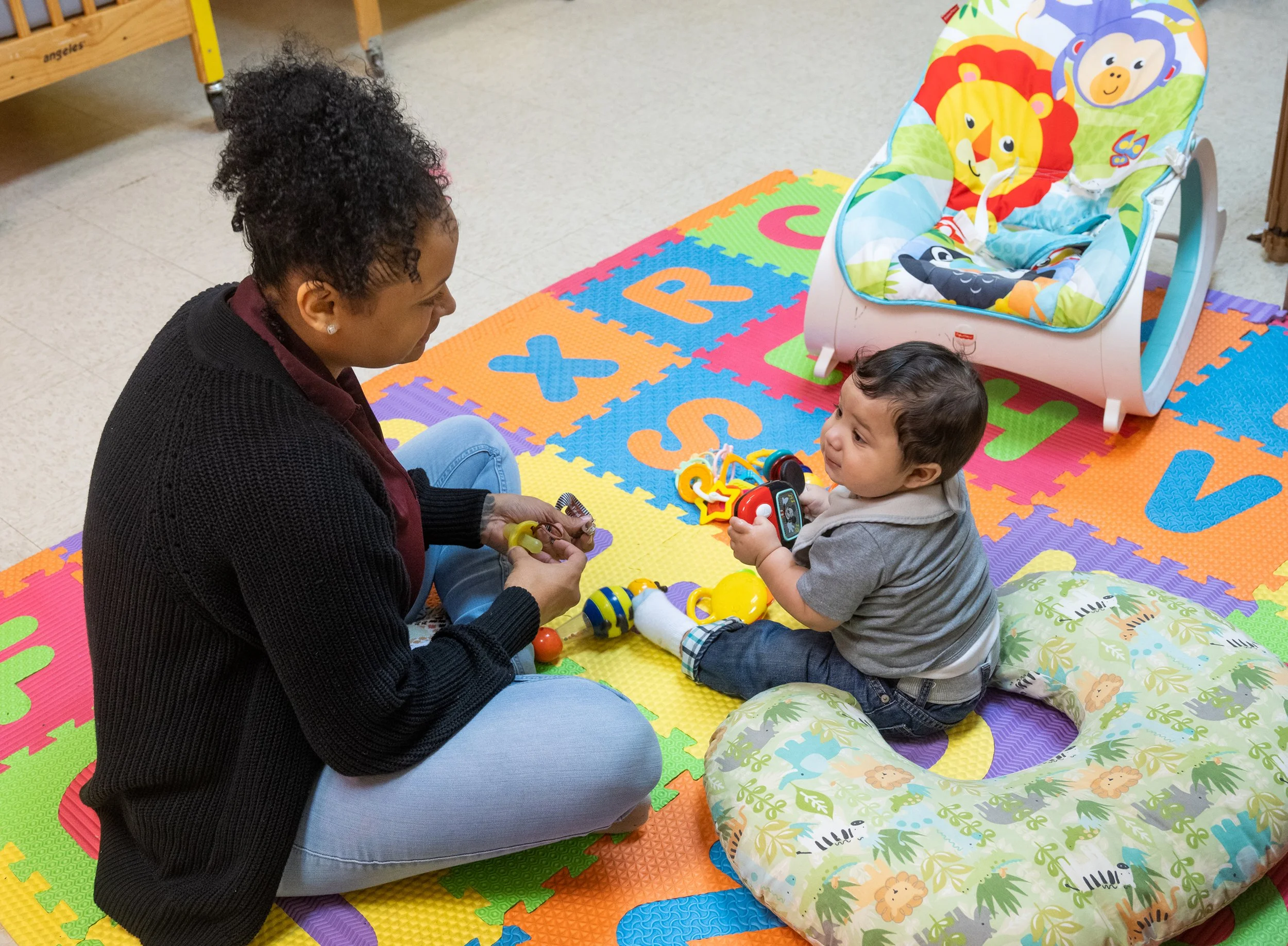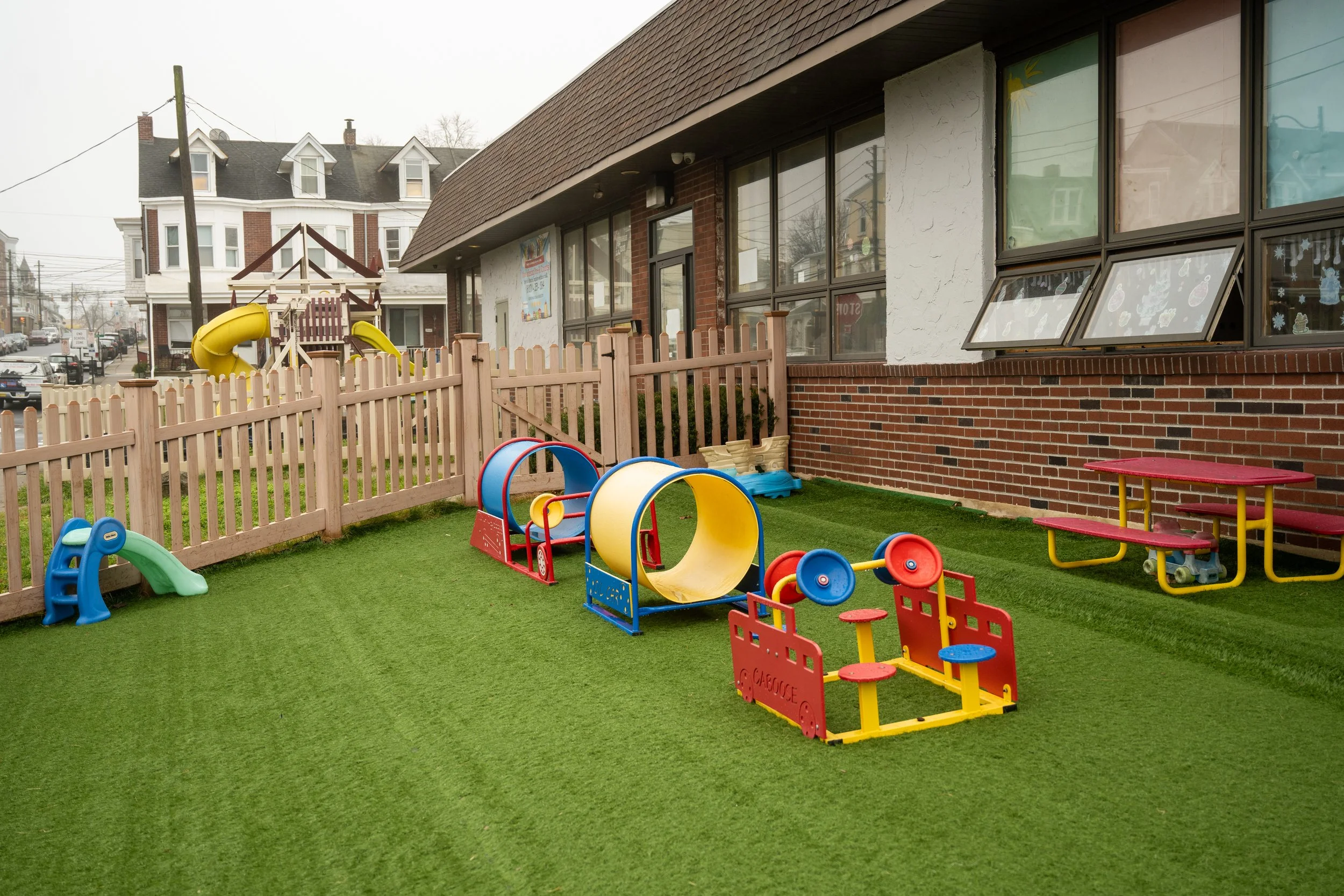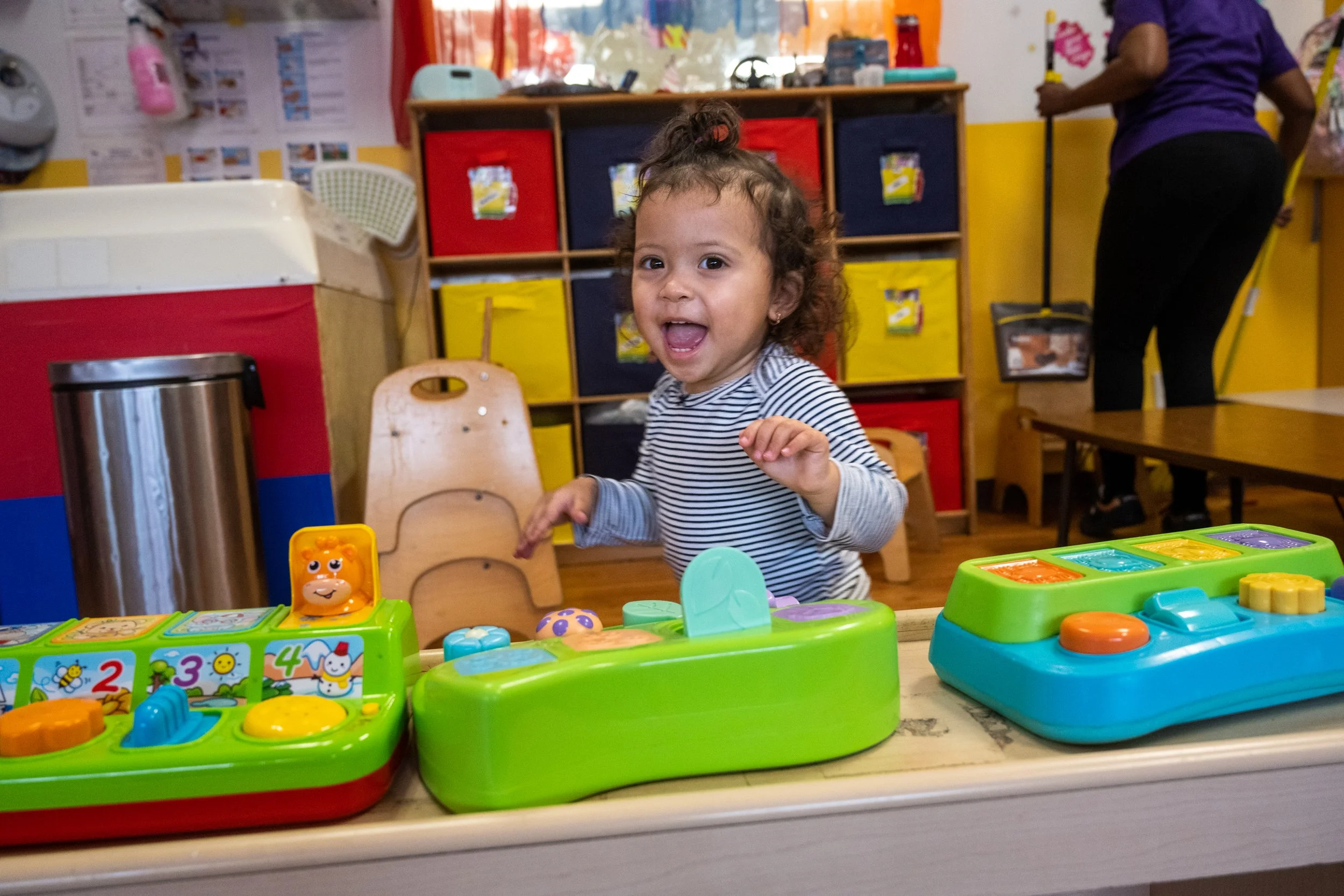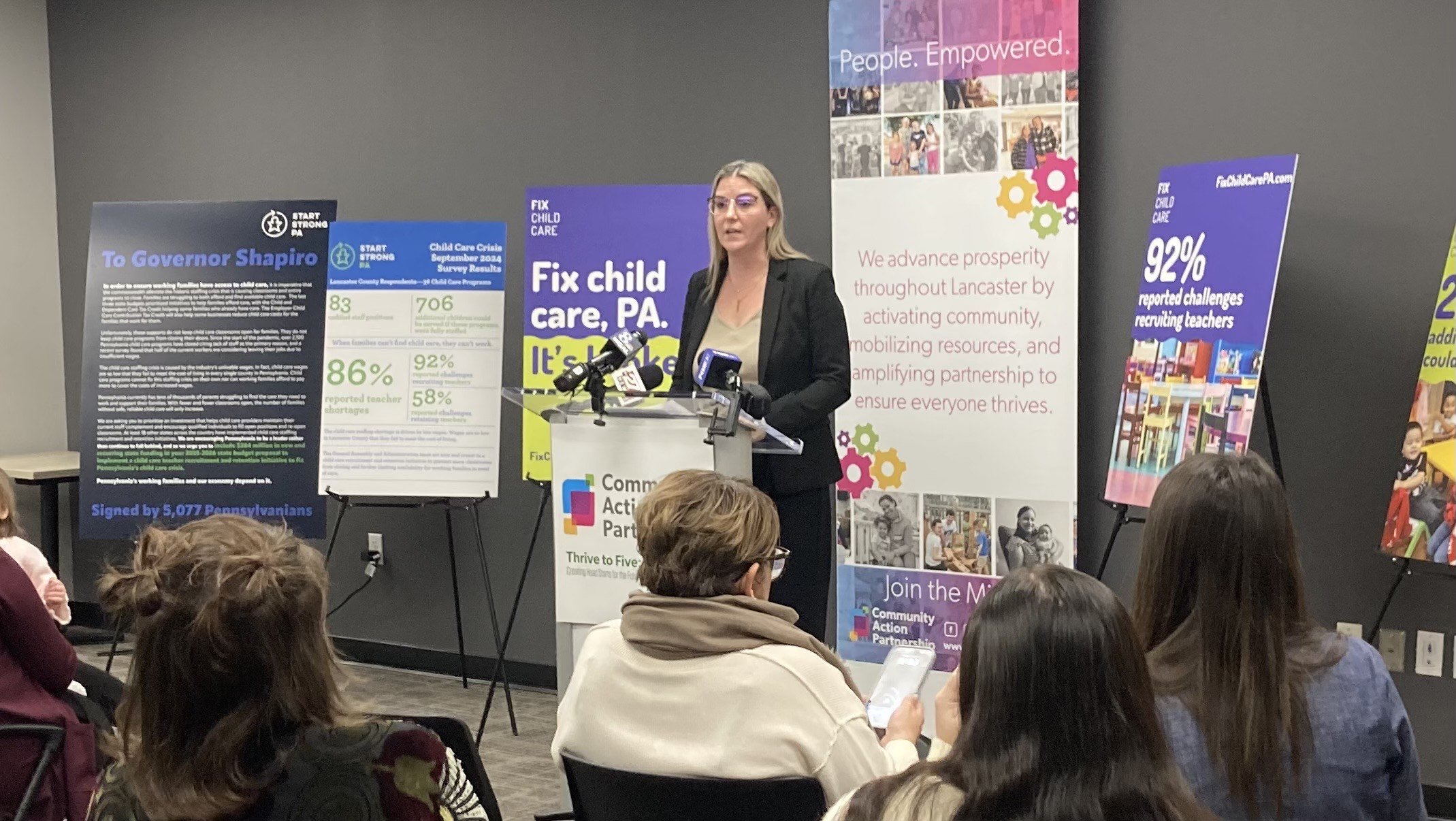News, Op-eds, Advisories, and Releases
Proposed State Budget Strengthens Support for Pennsylvania’s Early Learning Workforce
HARRISBURG, PA (February 3, 2026) – Today, the principal partners of Early Learning Pennsylvania (ELPA), a statewide coalition of advocates focused on supporting young Pennsylvanians from birth to age five, expressed appreciation for the Shapiro Administration’s 2026-27 state budget proposal and its continued focus on children and early education workforce investments, while also highlighting the need for additional support in areas like infant and toddler Early Intervention and home visiting.
ELPA operates issue-based advocacy campaigns, including: Pre-K for PA, Start Strong PA, Childhood Begins at Home, and Thriving PA. The partners of ELPA issued the following statements regarding the Governor’s budget proposal:
Start Strong PA & Pre-K for PA Condemn Disproportionate Federal Freeze on Child Care Funds
Harrisburg, PA (January 14, 2026) – In response to the federal administration’s decision to freeze Child Care and Development Fund (CCDF) payments in 5 states, the Start Strong PA and Pre-K for PA campaigns issue the following statement:
The recent decision to freeze access to Child Care and Development Fund, Temporary Assistance for Needy Families, and Social Services Block Grant funds for California, Colorado, Illinois, Minnesota and New York is a disproportionate and harmful reaction to alleged fraud confined to specific providers in Minnesota. Let us be clear: fraud within public systems is unacceptable and must be addressed with precision. However, we must also be clear that states have regular audits of these funds, many systems like Pennsylvania’s have robust program integrity measures, and federal oversight mechanisms are already in place to ensure accountability.
Early Education Budget Investments Make Progress on Teacher Shortage Crisis
HARRISBURG, PA (November 12, 2025) – Today, the principal partners of Early Learning Pennsylvania (ELPA), a statewide coalition of advocates focused on supporting young Pennsylvanians from birth to age five, applauded the 2025-26 state budget’s focus on children and early education workforce investments, vital commitments finalized after prolonged negotiations.
Investments that will stabilize and reverse the exodus of early educators will directly benefit tens of thousands of teachers and other professional staff and help provider businesses remain open. Additionally, these investments will help reverse the billions of dollars in lost productivity and earnings suffered by working families and employers when families don’t have the care they need
Thousands of Pennsylvanians Call on the General Assembly to Fix Child Care
HARRISBURG, PA (June 24, 2025) – Today, Start Strong PA, delivered a petition containing 4,905 signaturesto members of the General Assembly urging them to “Fix Child Care” by including sustainable state funds as part of the final 2025-2026 state budget to help address the child care sector’s on-going teacher shortage. The petition calls for, at minimum, the $55 million proposed by Governor Shapiro in new and recurring state funding to implement a child care teacher recruitment and retention initiative.
New Poll Reveals Dramatic Bipartisan Voter Support for Increased State Funding for Child Care & Pre-K Programs
HARRISBURG, PA (May 1, 2025) — Just as the Pennsylvania 2025-26 state budget negotiations begin; partners of the Early Learning PA Coalition are releasing new polling data showing strong voter support for early childhood care and education programs and increased state funding to strengthen and grow these services.
The statewide poll, commissioned by the Early Learning PA Coalition and conducted by Susquehanna Polling and Research of 700 likely voters from March 17 – March 23, 2025, found that:
98% of PA voters believe that early childhood education is important.
73% of PA voters support increasing state funding to serve more eligible children in pre-k programs.
73% of PA voters support increasing state funding to help more low-income working families afford high-quality child care.
83% of PA voters support the use of state and/or federal government funding to pay for the Head Start program.
83% of PA voters favor allocating state funding to increase wages of child care workers.
72% of PA voters favor allocating state funding to increase compensation for pre-k teachers.
Working Families & Employers Win With Shapiro Early Education Budget Investments
HARRISBURG, PA (February 4, 2025) – Today, the principal partners of Early Learning Pennsylvania (ELPA), a statewide coalition of advocates focused on supporting young Pennsylvanians from birth to age five, applauded the early education workforce investments included in the Shapiro Administration’s 2025-26 state budget proposal.
Investments that will stabilize and reverse the exodus of early educators will directly benefit tens of thousands of teachers and other professional staff and help provider businesses remain open. Additionally, these investments will help reverse the billions of dollars in lost productivity and earnings suffered by working families and employers when families don’t have the care they need.
Lancaster Chamber calls on Gov. Josh Shapiro to budget $284M for child care workers
By Lisa Scheid
LNP | Lancaster on-line
Lancaster Chamber President Heather Valudes and other local community leaders on Monday called on Gov. Josh Shapiro to include a $284 million program in the state’s next budget to address a child care workforce crisis they say is holding back businesses.
State Budget Fails to Address Crisis in Early Childhood Sector to the Detriment of Working Families and Employers
HARRISBURG, PA (July 11, 2024) – Today, the principal partners of the Pre-K for PA and Start Strong PA Campaigns issued the following statements regarding Senate Bill 1001 that awaits the expected signature of Governor Shapiro to become the enacted 2024-25 Pennsylvania state budget.
Shapiro Budget Offers Progress - Early Education Advocates Warn Historic Early Childhood Staffing Shortages will Persist
HARRISBURG, PA (February 6, 2024) - Today, the principal partners of Early Learning Pennsylvania (ELPA), a statewide coalition of advocates focused on supporting young Pennsylvanians from birth to age five, issued the following statements regarding Governor Josh Shapiro’s 2024-25 state budget proposal. ELPA operates four issue-based advocacy campaigns: Pre-K for PA, Start Strong PA, Childhood Begins at Home, and Thriving PA.
Historic Shortage of Child Care Teachers Shrinks Child Care Availability for PA Families by 26,000 Slots
HARRISBURG (January 2024) – A recent survey conducted by The Children’s Hospital of Philadelphia’s Policy Lab on behalf of Start Strong PA demonstrates Pennsylvania’s ongoing child care crisis continues to threaten parents’ ability to work and the overall economy. The survey, conducted between August 29, 2023 and September 21, 2023, details the child care staffing crisis in 762 of Pennsylvania’s child care programs and its effects on working families' ability to access care.
According to the survey:
● Nearly 26,000 additional children could be served at child care programs’ sites if they were fully staffed.
● Programs reported 2,395 open positions resulting in the closure of 934 classrooms.
● Child care providers’ inability to recruit and retain staff is having a direct impact on the quality of their programming.
This historic shortage of child care workers is dramatically reducing the availability of care options for working families, and these incredible numbers are only those reported by a fraction of the total number of child care programs in the state.
Child care in Pa., U.S. facing fast erosion as federal relief program ends
By Eric Scicchitano
The Tribune-Democrat
Advocates say that it’s not a cliff awaiting Pennsylvania’s child care providers when a federal financial relief program expires on Saturday.
Rather, they say, what lies ahead is the continued erosion of an industry already beset by low pay, an unstable labor pool and an inability to meet public demand.
“In the last two weeks, I know about five programs that are closing. It’s all about staffing. They can’t find staff,” said Diane Barber, executive director of the Pennsylvania Child Care Association. “It’s more about attrition than it is about sudden closure.”
When should parents sign up for child care amid staffing shortages? Right away.
By Megan Tomasic
The Pittsburgh Post Gazette
Shannon Veltre knew something had to change as she watched the staff members at her early learning center scurry around the facility over the past few years, anxious to ensure that each child was cared for.
Staffing shortages caused timecards at the Forest Hills facility to reflect hours of overtime, hinting at the burnout staff were facing. New families hoping to grab a spot in the program were turned away because of a lack of workers while children already enrolled were shuffled around the facility to guarantee they received necessary services and attention.
My day care was my lifeline, and I was bereft when it closed. Thousands of Pa. families are facing the same fate.
Alison McCook
The Philadelphia Inquirer
This week, we will reach the edge of the so-called childcare cliff, when the pandemic-driven infusion of federal funds to save the childcare industry runs out. An estimated one in three childcare programs in the country — or 70,000 — may have to close their doors.
In Pennsylvania alone, nearly 3,000 programs are set to shut down, leaving 150,000 kids with nowhere to go. For many families, this may not be a big deal — they make a few calls, find another nearby place that has space for a new child, and after an adjustment period, everyone settles in to a new routine.
'A child care crisis': Care for kids in Lehigh Valley at risk if federal funding expires
By Sarah Mueller
Lehigh Valley News.com
BETHLEHEM, Pa. — Affordable child care could become further out of reach for more Lehigh Valley families if federal funding for day care centers and preschools expires at the end of the month.
Nearly $24 billion in pandemic dollars earmarked for day care centers and preschools nationwide will end on Sept. 30 unless Congress extends it.
Congresswoman Susan Wild said she is pushing for $16 million in additional federal funding over the next five years to help shore up day care centers and preschools in the Lehigh Valley and nationwide through the Child Care Stabilization Act, introduced this week. Wild is a co-sponsor of the measure.
Congress must act to avert the looming childcare crisis | Editorial
The Editorial Board
The Philadelphia Inquirer
Without federal action, three million children in America could abruptly lose access to childcare at the end of the month, a development that could push many parents — including, experts say, a disproportionate number of women — out of the workforce.
Roughly $37 billion in pandemic-era stabilization grants — which have ensured financial access to childcare for families — will lapse on Sept. 30, leaving families with no guarantee of continued care.
Missed Opportunities: Early Learning Pennsylvania Urges Action on Pre-K Expansion and Child Care Crisis
MyChesCo
Principal partners of Early Learning Pennsylvania (ELPA) express disappointment over the failure to expand state-funded pre-K programs and address the child care crisis in the 2023-24 Pennsylvania state budget. They emphasize the importance of investing in early learning opportunities and stabilizing the child care workforce. Although there are increases in funding for early intervention programs and maternal health, ELPA is urging the Shapiro Administration to prioritize access and support for Pennsylvania’s youngest learners.
PA Senate Passes Budget with NO Funding to Address Early Learning Workforce Shortage
PA Senate Passes Budget with NO Funding to Address Early Learning Workforce Shortage
HARRISBURG, PA (June 30, 2023) — Today the Pennsylvania Senate passed its version of the state budget that fails to address the historic early learning workforce shortage. No new money was included for PA Pre-K Counts, Head Start Supplemental Assistance Program or efforts to stabilize the child care workforce. This means early learning providers will continue to lose teachers and close classrooms jeopardizing families’ ability to work.
Children First: Pennsylvania has a childcare crisis
By Freda R. Savana
Bucks County Herald
Across Pennsylvania, early childhood educators are leaving the low-paying, high stress profession, causing a severe staffing shortage and long waiting lists for the quality childcare programs that remain open, according to several nonprofits studying the worrying trend and its economic cost.
Children First, joined Start Strong PA and the YMCA of Bucks and Hunterdon Counties in a recent presentation outlining the depth of the crisis and calling for action. All the nonprofits share a focus on improving the lives of children in the state.
Cost of Care
By Colin Deppen & Tanisha Thomas
Spotlight PA
Child care costs are eating up a growing share of household incomes in Pennsylvania, Axios reports, leading some parents to exit the workforce.
A report from the Annie E. Casey Foundation released this week says the average cost of center-based daycare in Pennsylvania was $11,346 in 2020-2021, amounting to 10% of a married couple's median income and 35% of the median income for single parents. Experts say single working women, families of color, and immigrants are disproportionately impacted.
Letter to the editor: Ending the child care staffing crisis
Eva Wood - Ligonier; Erin Schellenberger - Latrobe
Trib Review
The child care staffing crisis, caused by the sector’s low wages, is rapidly diminishing working families’ access to child care. Unfortunately, programs all across Pennsylvania are closing classrooms and further limiting families’ options as they look for a safe, high-quality learning environment for their child while they work.
Across Pennsylvania there are thousands of families sitting on waiting lists. This impacts the workforce in every other Pennsylvania industry. Child care teachers are the workforce behind the workforce, and we are failing them.




















